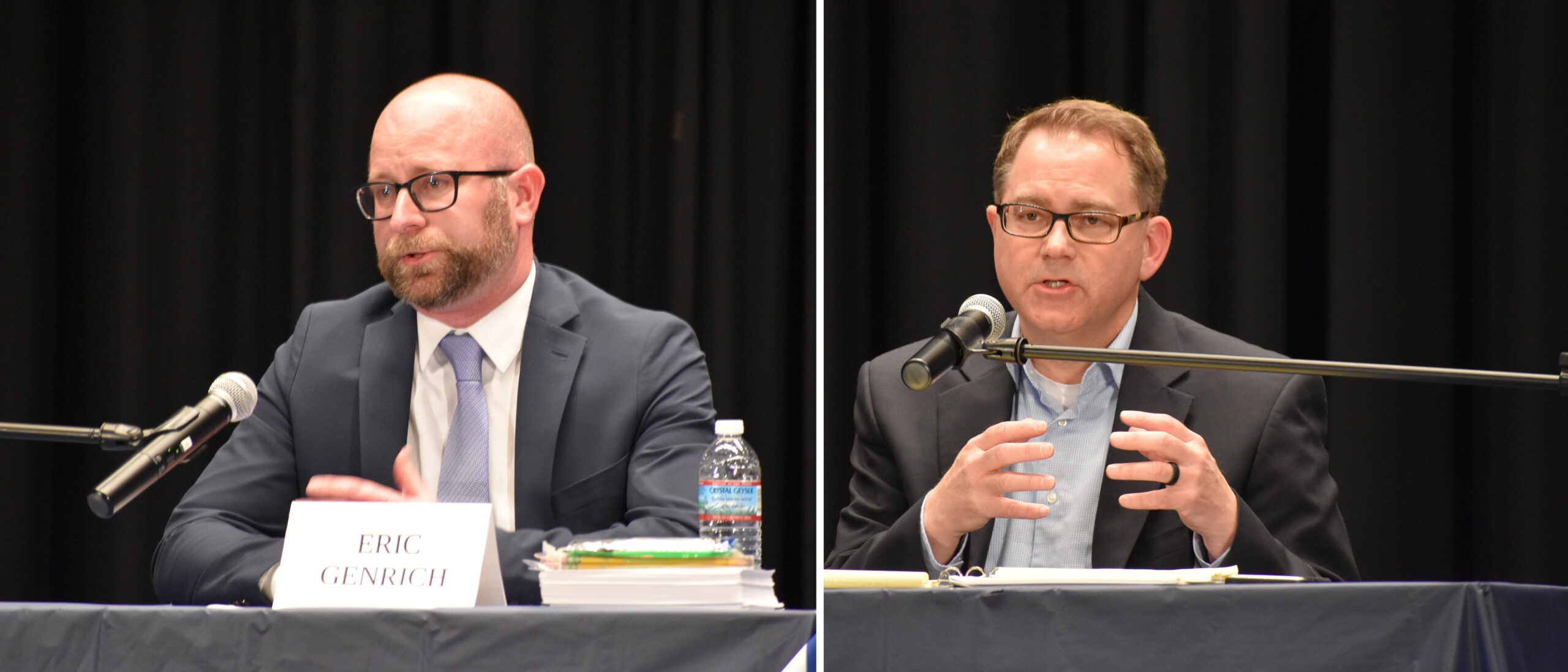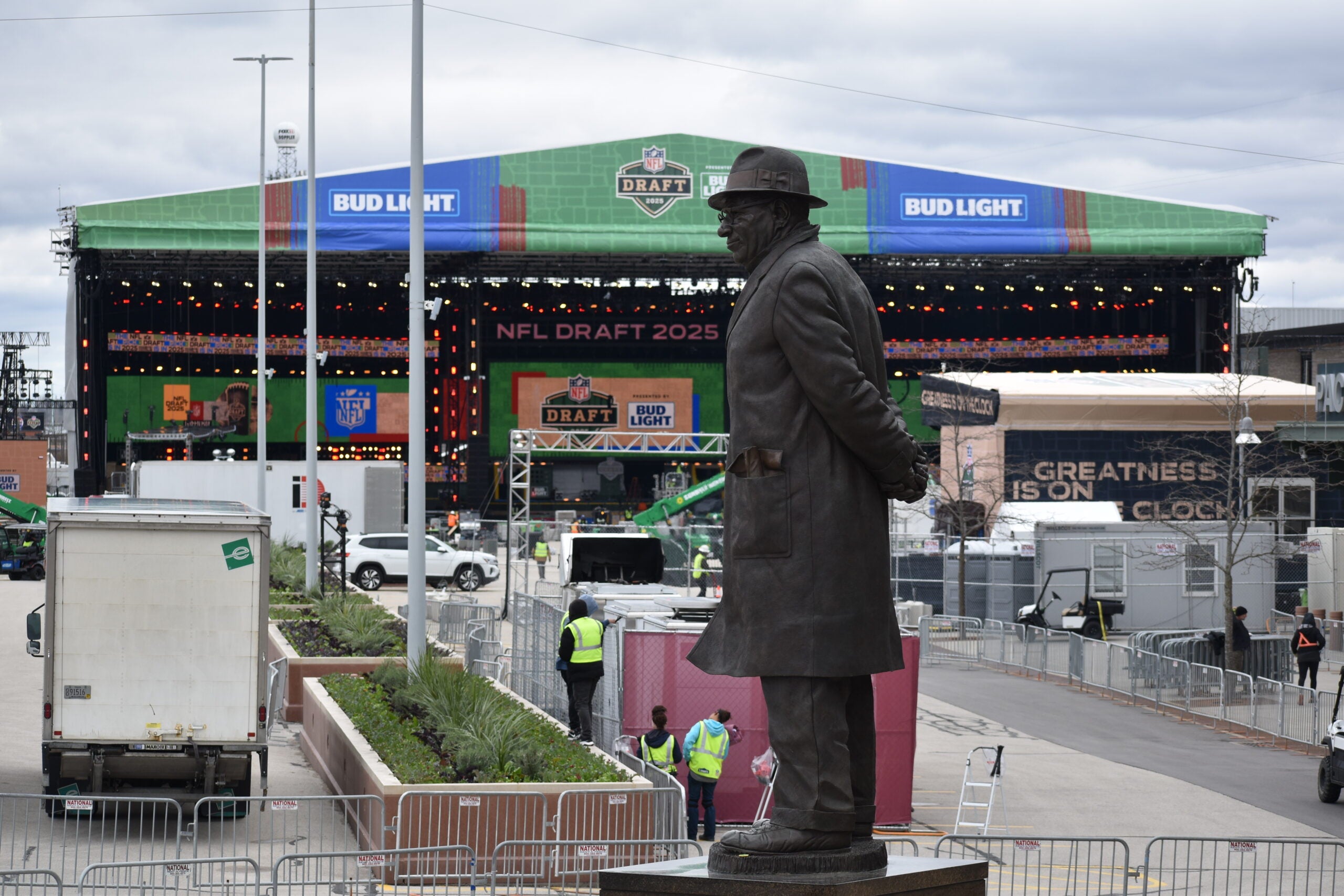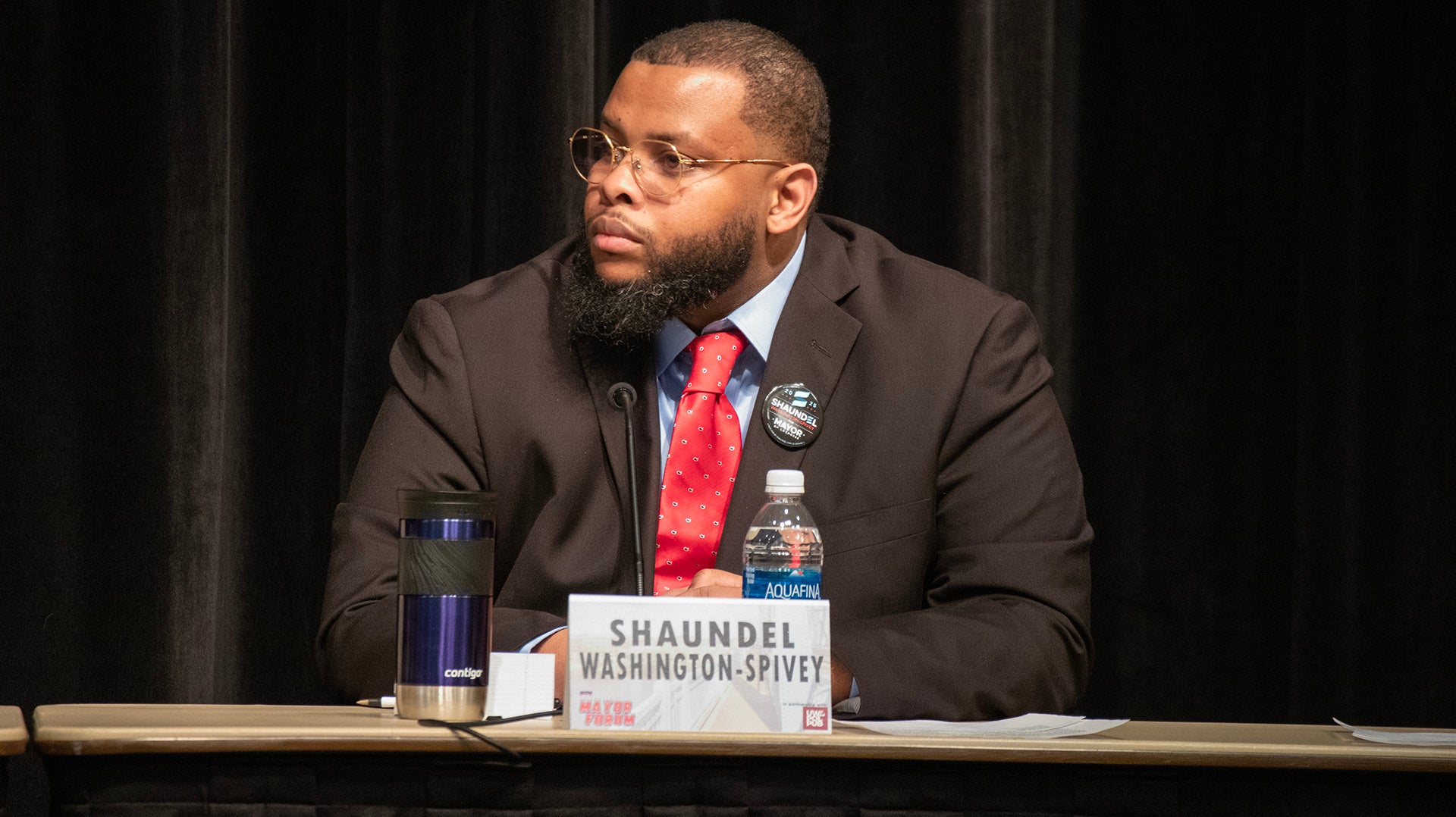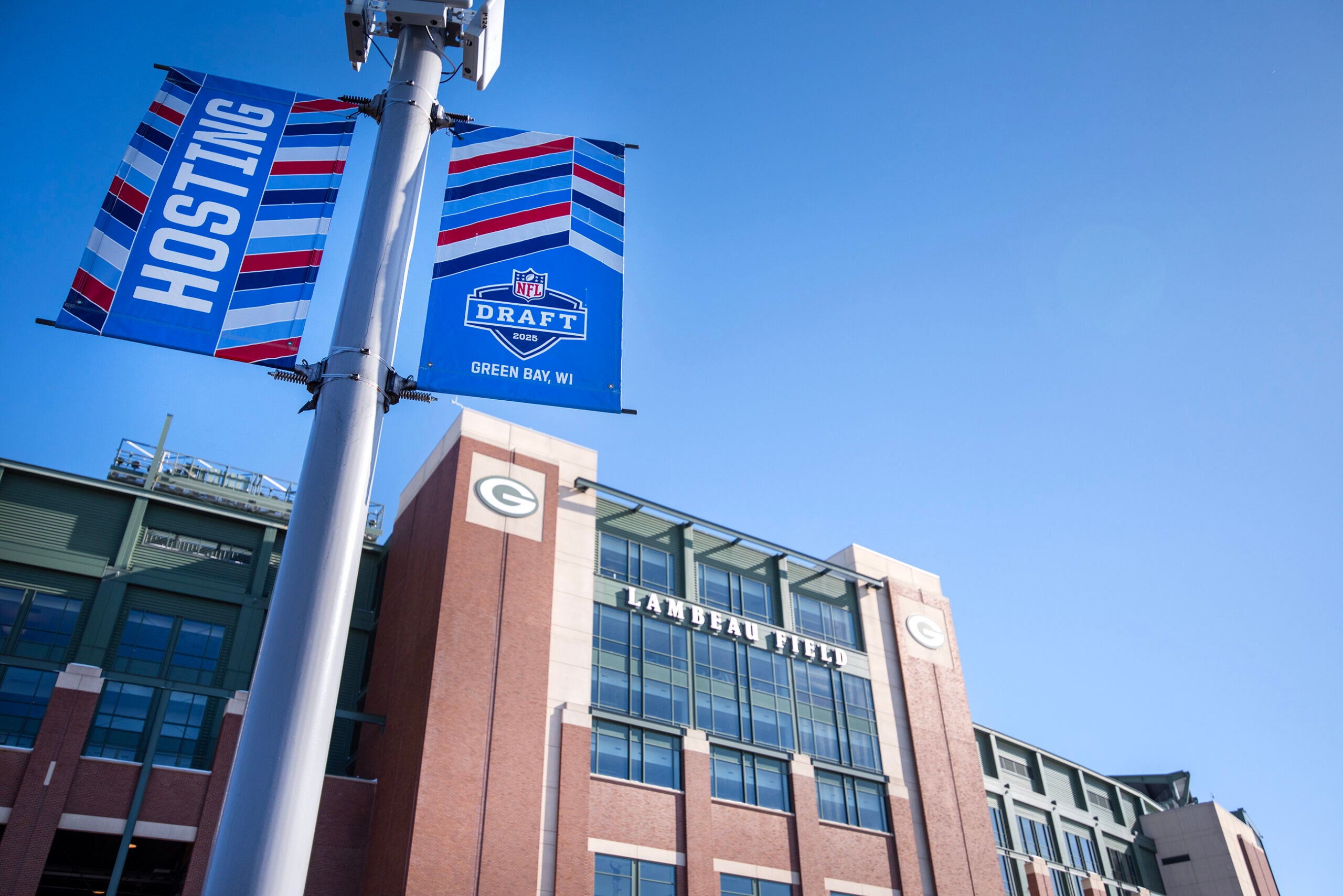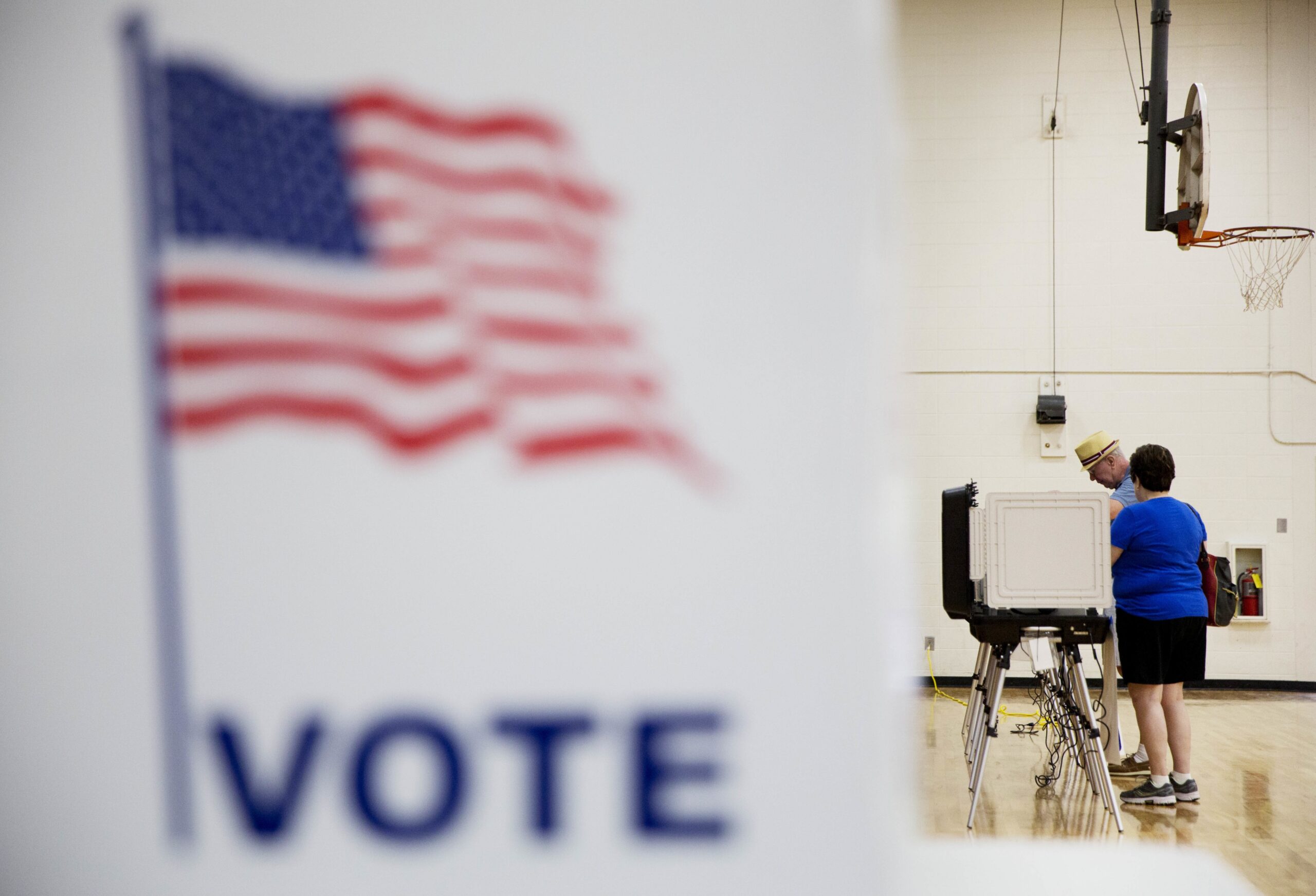The Green Bay mayor’s race could have major ramifications for the state’s third-largest city, where the incumbent mayor has had to make several tie-breaking votes within the last year.
Mayor Eric Genrich and Brown County Director of Administration Chad Weininger will face off in the April 4 election. Genrich was elected in 2019 and is a former Democratic state representative, while Weininger is a former Republican state representative.
The race is officially nonpartisan, but the Democratic Party of Wisconsin has backed Genrich while Republican donors have backed Weininger. Campaign finance reports filed last month show Weininger’s campaign had over $120,000 of cash on-hand, while Genrich’s campaign had about $106,000.
News with a little more humanity
WPR’s “Wisconsin Today” newsletter keeps you connected to the state you love without feeling overwhelmed. No paywall. No agenda. No corporate filter.
Genrich said his reelection bid is an opportunity for the city to continue making progress on public safety, infrastructure and inclusivity. Weininger said Genrich has increased taxes, while not doing enough to boost economic development, or to improve infrastructure and public safety.
Over the last year, Genrich has been the tie-breaking vote on several issues when the Common Council was deadlocked. Perhaps the biggest came in November when he broke a 6-6 tie to approve the 2023 city budget, which increased spending for police, fire and public works departments.
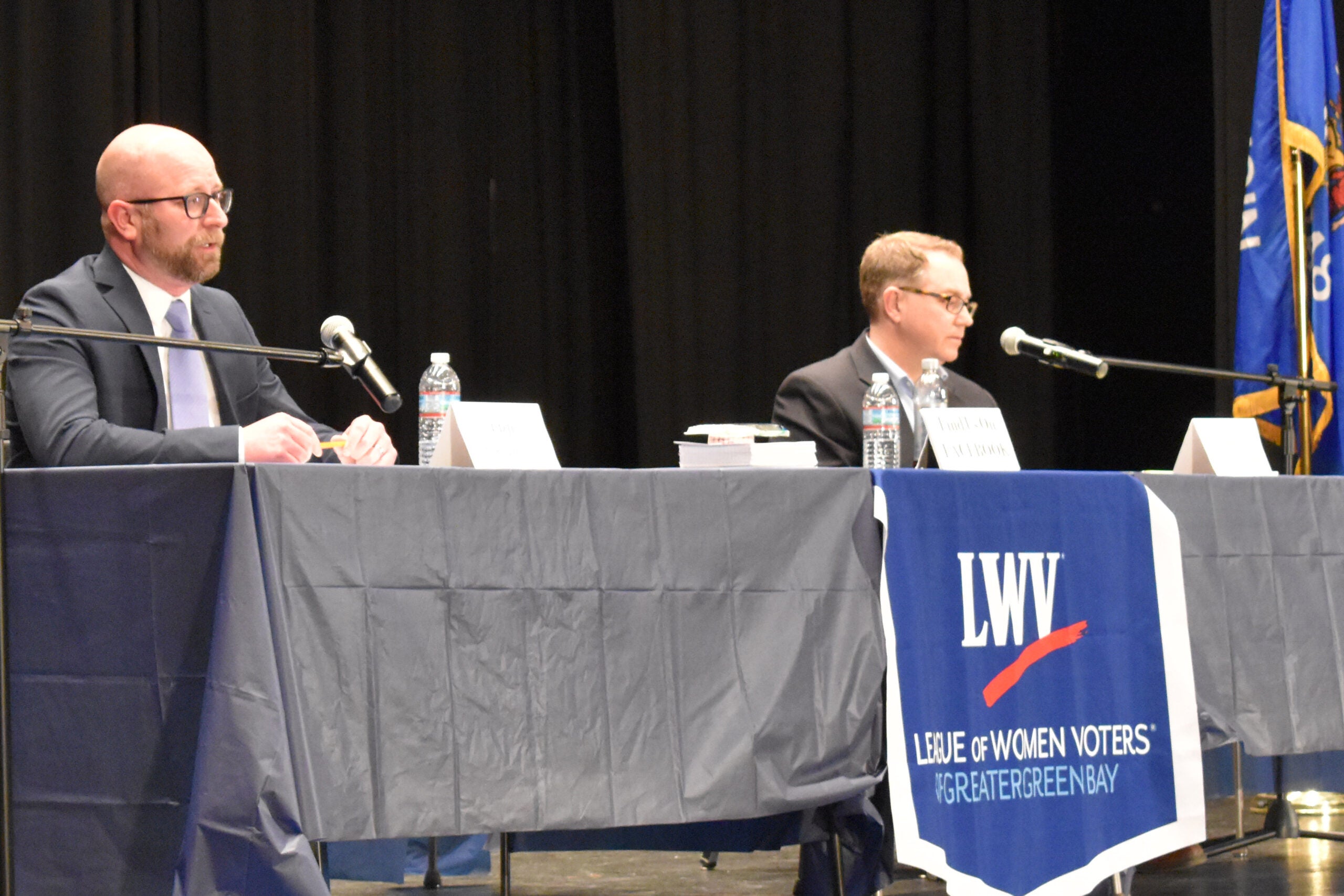
During a candidate forum last Thursday, Weininger said recent tax increases have made it harder to live in Green Bay. He said the city needs to increase development to provide tax relief and argued the city is falling behind its neighbors in terms of new construction.
In Wisconsin, the amount a city can increase its property tax levy is tied to its net new construction.
“You need that net new construction. That’s the lifeblood of the community,” Weininger said. “And that’s what we need to focus on, so we need to change our attitude at City Hall to actually attract development.”
Genrich attributed property tax increases to new investment in public safety and other priorities. He said adding a city sales tax would have prevented property tax increases, but such a move was blocked by the county.
“With respect to economic development, that’s something that I take very seriously and work on, absolutely, on an everyday basis,” he said. “Just the other day, I was talking with a developer from the city of Milwaukee who hasn’t yet done work beyond that city, but he’s really interested in coming to the city of Green Bay.”
Genrich also cast tie-breaking votes to allow the city to fly the LGBTQ+ pride flag at city hall. Twice Genrich broke Common Council ties on policies that would have prevented the city from flying the pride flag.
When asked about inclusivity at the candidate forum, Genrich said his administration has embraced the city’s diversity, especially with regard to the LGBTQ+ community. He said those efforts are crucial to growing the city’s population.
“It’s really important — in my opinion — to have a mayor who lives those values, who believes in building an inclusive and welcoming community here,” he said. “If you are not viewed in those terms, if you’re viewed as one that closes its doors to new ideas, and new people and new faces, you’re not going to be attracting new residents.”
Weininger didn’t comment specifically on inclusivity, but said projections show the city’s population is shrinking for “the first time in a long time.” During his response to the inclusivity question, Weininger said the idea of adding a city sales tax would hurt Green Bay’s ability to grow.
“You’re actually advocating for additional sales tax, just out of the city of Green Bay residents,” Weininger said. “It’s already hard enough to attract people here, and the fact of the matter is by putting another sales tax on them — in addition to all the other taxes — it’s going to be harder to attract those commercial businesses here that we need for our community.”
U.S. Census Bureau figures show Green Bay’s population grew by 3,338 people from 2010 to 2020, but its estimated population declined by 0.3 percent from April 2020 to July 2021.
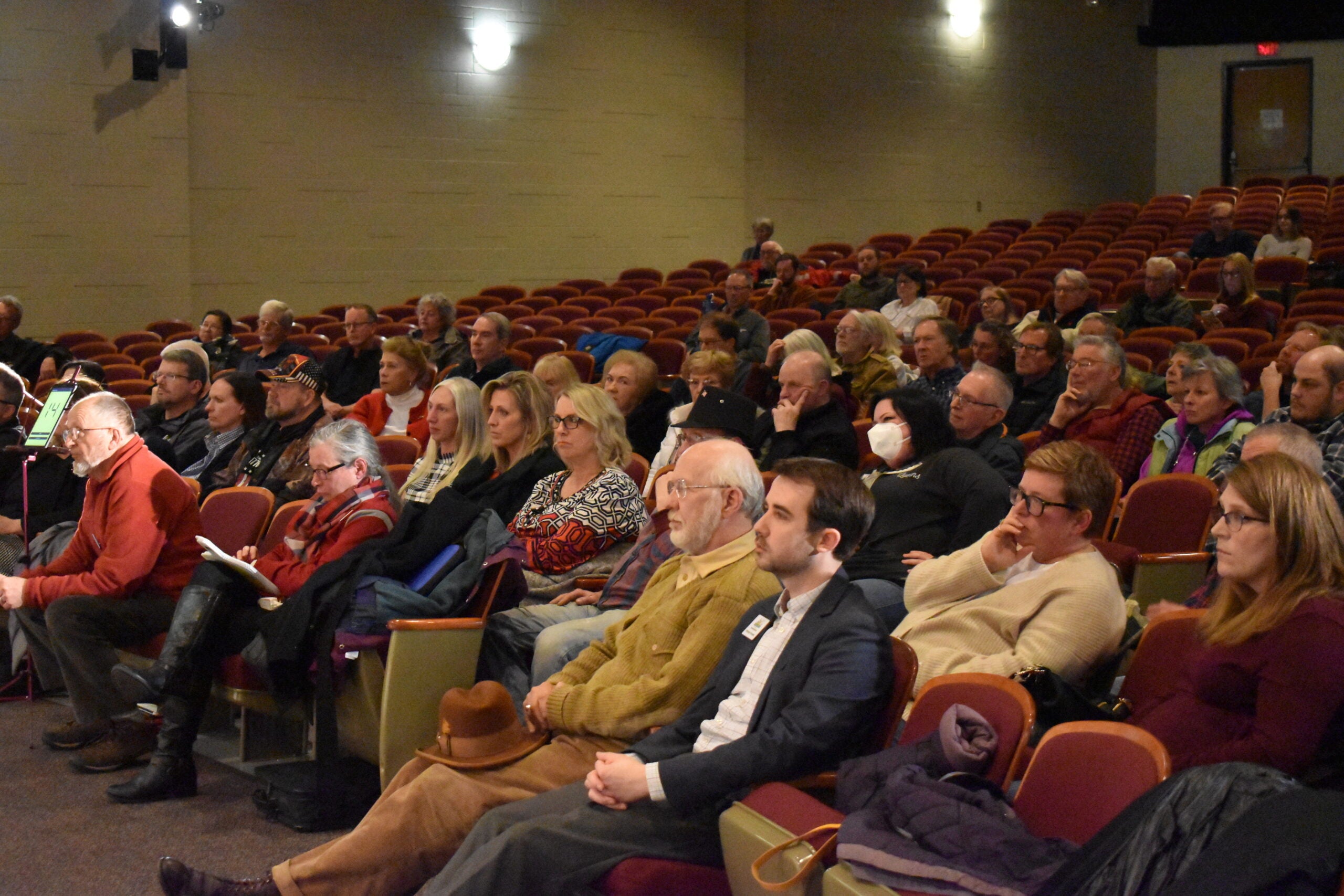
During the forum, both candidates also addressed the city’s use of audio recording devices in public hallways of city hall. Genrich and the city face a lawsuit from the Wisconsin State Senate and three other plaintiffs over the issue. Earlier this month, the Common Council voted to stop using audio devices and to delete the recordings once the lawsuit is resolved.
Weininger said audio equipment should not be in city hall hallways and questioned whether the issue was really in response to safety concerns.
“If it was just a public safety issue, then it just would have went to the police office — no one else would have had access to it,” he said. “That makes me quite concerned because I, in good faith, have gone to the city hall to negotiate. … I’ve had private conversations with our corporation counsel in those halls.”
Genrich said the devices were installed in response to security concerns from staff and the public. He said the lawsuit was politically motivated to coincide with the mayoral election.
“It’s perfectly fine to have a discussion about these sorts of security systems, but this was not something that was done in good faith,” Genrich said. “And it was something that was undertaken in an underhanded way by allies of Chad Weininger.”
Wisconsin Public Radio, © Copyright 2025, Board of Regents of the University of Wisconsin System and Wisconsin Educational Communications Board.

